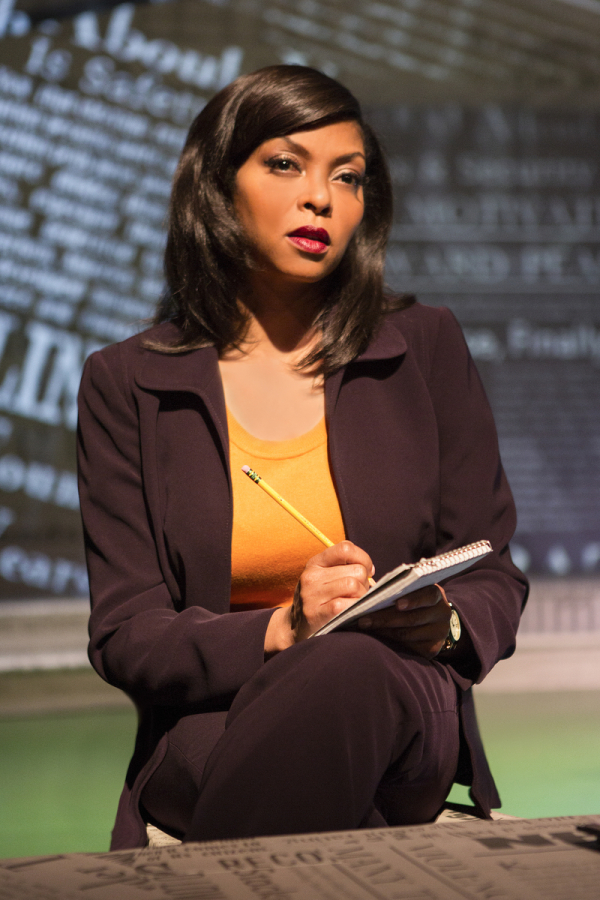Above the Fold

(© Jim Cox)
The model for Bernard Weinraub’s play Above the Fold, premiering at the Pasadena Playhouse, is Tom Wolfe’s Pulitzer Prize winner Bonfire of the Vanities. Though parallels can be seen between both works, the indictment of politicians, the press, and Caucasian and African-American leaders for instigating and celebritizing the racial divide, Weinraub’s work also maintains a ripped-from-the-headlines feel.
Above the Fold (a term used in journalism to describe the story that gets prime editorial real estate "above the fold" of a newspaper) opens with Jane (Oscar nominee Taraji P. Henson), who finds her promotion potential at her reputable New York newspaper dwindling. Though she is desperate for the Middle East post, which could lead to a position on the paper’s editorial staff, they instead send her to North Carolina to follow a local election (much to her chagrin). While in North Carolina, Jane becomes entangled in a story blazing around her, the rape and brutal beating of an African-American stripper by three fraternity boys at the local Ivy League college. Jane spins the story, portraying the woman as a saintly mother of two and the boys as entitled monsters, but after creating a media hurricane, she begins to fear that the story she made famous may not be completely true.
Henson strongly conveys consternation and confusion as the truth unravels and her character struggles between her integrity and self-preservation. It is a credit to Henson that she lifts the character out of the script contrivances to force the audience to forgive Jane her transgressions. But it is Johnson, playing the physically frail and realistically bruised alleged rape victim Monique (vividly made up by Raenae Kuaea), who steals the show. Instead of making Monique look like an opportunist, Johnson turns her into Blanche Dubois from A Streetcar Named Desire.
Also excellent is Mark Hildreth as the small-town rube of a DA who stammers, stares at the ground, and innocently stumbles into the case of the century. Arye Gross, as Jane’s editor, portrays the desperation of a man whose career is hitched to a dying industry. As the three accused fraternity boys, Kristopher Higgins, Joe Massingill, and Seamus Mulcahy act like typical college kids who are their own worst enemies.
Although playwright Weinraub began his career as a correspondent for The New York Times, many of the scenes feel inauthentic, especially when they speak alone to a journalist without the presence of legal counsel. And Jane is so quick to manufacture quotes and write without research that when her conscience nags, the audience no longer has compassion for her as a character.
The set includes a visual design that looks like an old VHS tape stuck on pause, and it became a painful distraction on the eyes. But the physical manifestations of costume designer Dana Rebecca Woods’ choices make you feel the envy Monique has over Jane’s shoes and her own evolving wardrobe, which further accentuate the socioeconomic gap between the two women and the desire to have what the other does not.
Above the Fold wants to be provocative, but it reveals nothing new about politics, publicity, or racism. If this were truly the world of journalism, it would be a story best left to below the fold.










